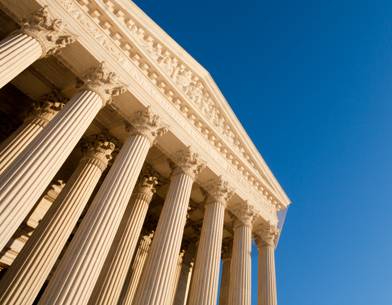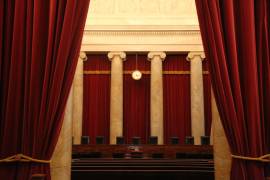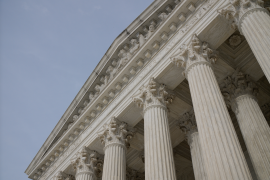
How Does Judicial Diversity Impact Access to Justice for Our Communities?
Blog Search
Yesterday, the United States Senate voted to confirm two openly gay African-American judges to the federal bench - Staci Yandle for the Southern District of Illinois and Darrin Gayles for the Southern District of Florida. This marked the first time that two openly gay judges were confirmed on the same day. Staci Yandle is the first African-American judge to ever to sit on the federal bench in the Southern District of Illinois. Judge Gayles is the first openly gay African-American man to serve as a federal judge anywhere in the country.
For our court system to be fully respected and seen as legitimate in the minds of all of the people whose rights it has the power to uphold, the people making decisions within the judiciary must reflect the incredible diversity of the United States. Currently, the judicial system is overwhelmingly homogeneous, both at the federal and state levels. This reflects the historical legacy of exclusion of men of color and all women from the legal profession, which we as a society are just beginning to correct.
Last month, Diane Humetewa was confirmed by the Senate as the nation’s first Native American woman on the federal bench. In the past week we saw another win for judicial diversity after the confirmation of Richard Boulware, a former public defender, who is the first black man appointed to the federal judiciary in Nevada.
Despite this recent progress, the numbers on overall judicial diversity are appalling:
- Women make up only 6% to 35% of the judiciary depending on the state system.
- At the federal level, women make up only 1/3 of the judiciary.
- With the exception of Hawai’i, judges of color account for 0 to 21% of state judiciaries.
- Of the 13 federal courts of appeals, there are 7 courts without a single woman of color on the bench.
In 2014, we have only two out transgender judges in the entire country, and none within the federal judiciary. As far as we know, there are zero openly HIV positive judges and zero openly bisexual judges nationwide. The number of LGBT judges in state courts is hard to determine because most states do not even collect data on sexual orientation and gender identity as part of a judicial candidate’s application process.
While the judicial branch is the branch of government that is called upon to be the impartial interpreter of our laws, the reality is that the law is not always clear cut. In these grey areas of the law, all judges will draw upon their lived personal and professional experiences in the role that they play as decision makers.
When the bench better reflects the diversity of court users, there will be much greater empathy and range of perspectives within the judiciary, resulting in greater fairness and justice overall. For example, a recent study found that federal appellate judges who have a daughter are seven percent more likely to rule in a way that upholds reproductive rights and gender justice; and the impact of having a daughter on judicial decision making was found to be the greatest among Republican male judges.
True judicial diversity not only means more people of color and women on the bench, although that is critically important. It also means the judiciary should reflect the diversity of our communities in terms of sexuality, gender identity, HIV status, disabilities, language, ethnicity, immigration, religious and political affiliations, and areas of legal expertise.
Thankfully, judicial diversity is increasing.
- During the current administration, we have seen 11 openly gay or lesbian judges confirmed to the federal bench. There was only 1 out lesbian federal judge when President Obama came into office.
- In May 2014, Judge Mary Yu became the first out lesbian, first Asian American, and first woman of color to serve on the Washington Supreme Court.
- Yesterday, Salvador Mendoza became the first Latino federal judge in the Eastern District of Washington.
Lambda Legal’s Fair Courts Project is working across the U.S. to increase access to justice for our communities by defending judges who uphold human rights against attacks, educating the legal community and the general public about anti-LGBT and HIV bias in the courts, advocating for judicial independence in New Jersey and elsewhere, and promoting judicial diversity at the federal level and in key states such as Florida, Texas and Arizona.




